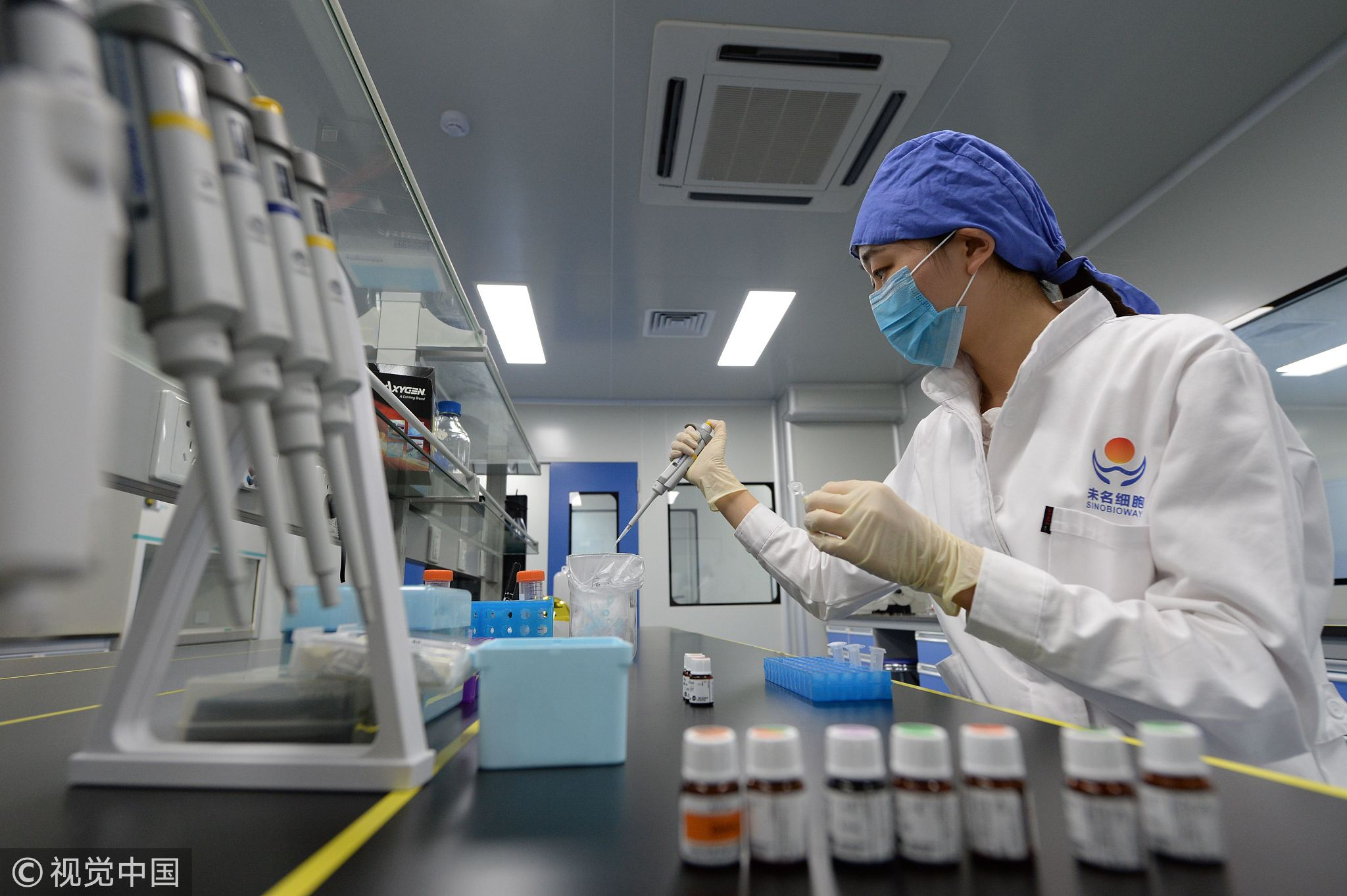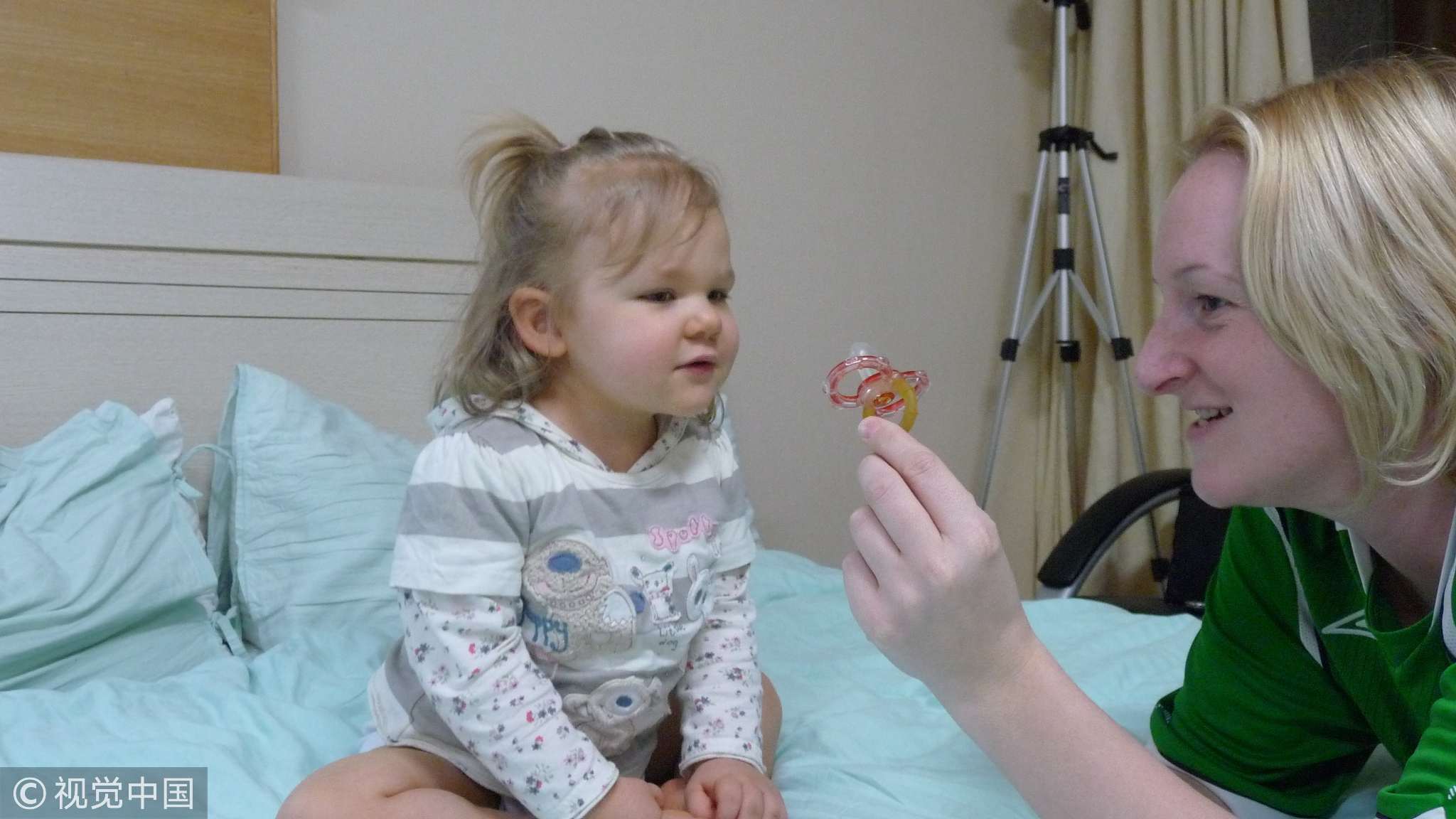
Opinions
12:28, 17-Sep-2018
Opinion: China is surging ahead in cancer treatment R&D, especially through AI
Updated
11:36, 20-Sep-2018
Li Xing

Editor's note: Li Xing is the CEO and founder of Deep Intelligent Pharma Co., Ltd. The article reflects the author's opinions, and not necessarily the views of CGTN.
Recent years saw the accelerated pace of research and innovation in cancer treatment, and CAR-T (Chimeric Antigen Receptor T-Cell Immunotherapy) became the focus of increased attention in 2017.
Statistics show that 143 CAR-T studies have been conducted in the United States, while 141 CAR-T related researches have been done in China, gradually making the country world's first echelon in CAR-T research.
CAR-T has become one of the few areas in which China can compete with western countries in medical research and development (R&D).
Recently, nine companies including JW Therapeutics, Fosun Kite Biotechnology, CARsgen Therapeutics, HRAIN Biotechnology, Genor Biopharma have established the Immune Cell Therapy Alliance of Shanghai (iCTAS).

A technician conducting an experiment in the National Gene Center, Hefei, China, July 18, 2018 /VCG Photo.
A technician conducting an experiment in the National Gene Center, Hefei, China, July 18, 2018 /VCG Photo.
It can be foreseen that small companies that want to make quick money cannot survive in the CAR-T field in the future, while the "regular armies" can survive which have scientific strength, research data, production capacity, and capital.
The CAR-T collaboration between Janssen Biotech, Inc. and Legend Biotech last year can be seen as a microcosm of the rise of Chinese cell therapy. Geographically speaking, North America and East Asia are the two major centers of global cell therapy.
The United States and China have the biggest number of cell therapy R&D in the world, and the total number of the two countries account for three-quarter of the global cell therapy R&D.
On October 28, 2016, China entered the history books as the first country ever to use the revolutionary CRISPR gene-editing technology on humans.

Britain's Dakota Clarke after regaining her sight post two-year long revolutionary stem cell treatment in China, February 2009 /VCG Photo.
Britain's Dakota Clarke after regaining her sight post two-year long revolutionary stem cell treatment in China, February 2009 /VCG Photo.
In addition, China's emerging artificial intelligence (AI)-driven new drug R&D has also provided the country with a good opportunity to get ahead in the race of emerging cancer treatment technologies and drug development.
The AI-driven super brain can calculate with huge computational power, integrate global databases, learn the hidden rules, drug design and optimization, and even design drugs from scratch.
AI can not only play a role in the early stages of drug discovery but also shorten the drug clinical development cycle, thus bringing good drugs to market at an early date. This is a historic opportunity. If China catches this fast train, the future is very promising.
(If you want to contribute and have specific expertise, please contact us at opinions@cgtn.com.)

SITEMAP
Copyright © 2018 CGTN. Beijing ICP prepared NO.16065310-3
Copyright © 2018 CGTN. Beijing ICP prepared NO.16065310-3